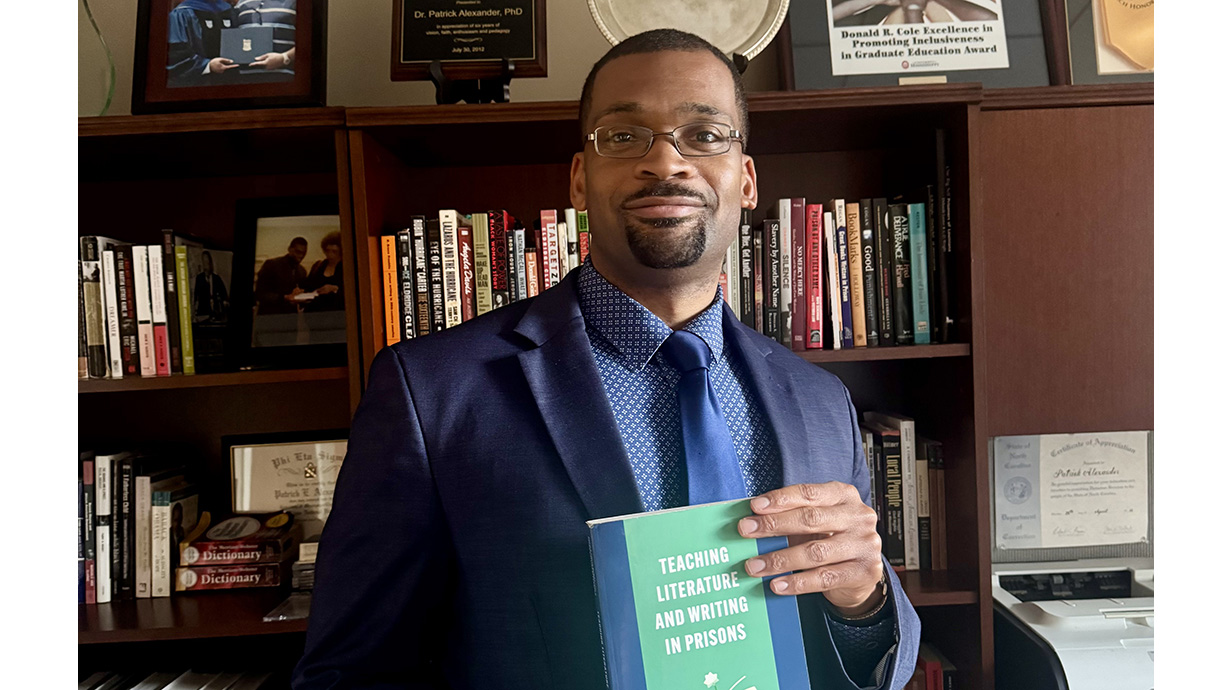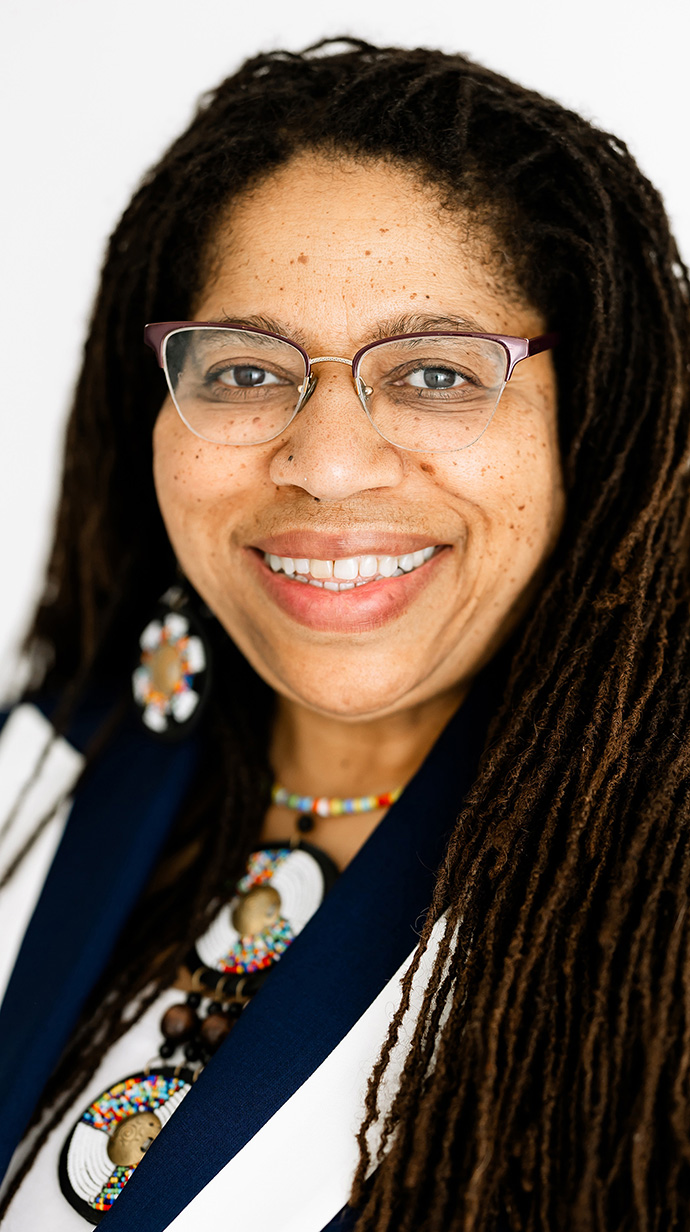National Award Recognizes UM Scholar's Work in Prison Classrooms
Literature classes teach community, freedom to incarcerated students

OXFORD, Miss. – University of Mississippi professor Patrick Alexander has earned the 2025 Teaching Literature Book Award for a collection that explores the power of the humanities to foster community in prisons.
Alexander, associate professor of African American studies and English, received the honor with his co-editor, Sheila Smith McKoy, CEO of Smith McKoy and Associates and Pulitzer Prize-nominated author or editor of eight books, for their collection of essays on teaching literature and writing with incarcerated students.
Idaho State University recently recognized that publication, "Teaching Literature and Writing in Prisons" (Modern Language Association, 2023), with its 2025 Teaching Literature Book Award.
"Our collection points out that there is an intrinsic value in education itself," said Alexander, founding director of the Prison-to-College Pipeline Program at Ole Miss. "If we take that seriously while people are incarcerated, they're in a better position to take the lead on building that community when they're released, too.
"In this work, we get to give something to these individuals that will go beyond those four walls. I think this book is a major way of speaking to the power of that."
The biennial award recognizes books that advance teaching literature at the college level. Alexander and Smith McKoy's book is a collection of work from faculty and incarcerated students and teachers from across the United States that explores not only how to teach literature in prisons but why doing so matters.

"It was just time for this work to be done, and I think that's one of the reasons why it still continues to receive the accolades it is receiving two years after its publication," Smith McKoy said.
"I think that it's imperative that this volume not only exists, but has received this award because I believe that it will open up other people with opportunities to teach literature and writing in prison, as well as the life-altering beauty that it engenders on both ends of the spectrum."
Research indicates that education programs for incarcerated person reduces recidivism and improve earnings and employment opportunities for participants when they are released. But that's not the only value in incarcerated classrooms, Alexander said.
"This is not just a metric of, 'how do we prevent people from going back to prison?'" he said. "That's important, but it's also important for us to understand that education is a human community building tool."
Students released from prison remain interested in being a part of that community, Alexander said. Multiple students told him they want to finish their education as soon as possible.
"That's meaningful, not just for the students themselves, but for their family, for their community," he said. "They have a sense that they're a part of something, and that they're a part of something that began while they were incarcerated – that somebody saw them as more than an imprisoned person."
There are also students who may never be released, but who find value and meaning in becoming teachers to those around them. Those students go on to lead learning circles, book clubs and other educational groups while still incarcerated.
"Folks who are in these groups and emerge as leaders, they talk about the way they feel like they almost get to be parents," Alexander said. "It's so powerful to be able to guide others in the group who will eventually be released.
"We have a gentleman in our program who has literally said this: 'I feel that part of me gets to live in a new way because this program exists.' That's the power of these programs."
Both editors and many of the contributors have worked with incarcerated individuals for decades, and the experience has left a mark on them as well, Smith McKoy said.
"There are so many similarities between us and the people who wind up being justice-involved," she said. "It would be surprising for most people to understand just what a win-win this is for people walking into those circumstances – not only for those that you're working with, but for you across the through-line of your life. I've never forgotten the experience.
"Being locked up doesn't mean that you lose your capacity to think and believe and change and grow, and that's something that we can all learn from."
Top: Patrick Alexander, associate professor of African American studies and English and founding director of the Prison-to-College Pipeline Program, has been recognized for co-editing the collection 'Teaching Literature and Writing in Prisons.' Photo by Clara Turnage/University Marketing and Communications
By
Clara Turnage
Campus
Office, Department or Center
Published
November 13, 2025
